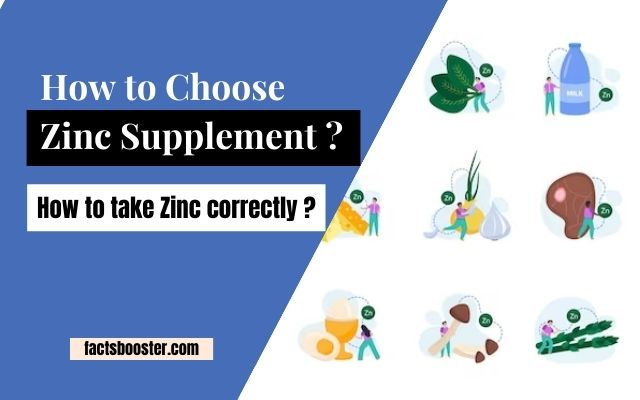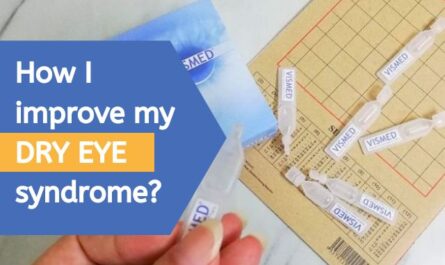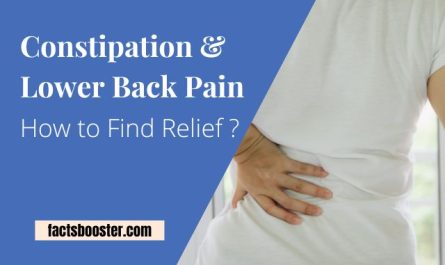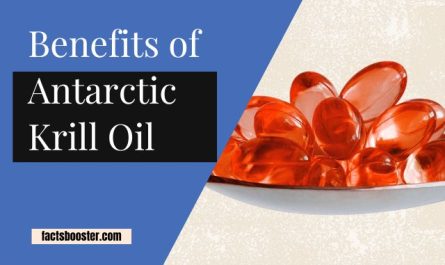How to Choose Zinc Supplement? Zinc plays a crucial role in our health. It supports the immune system, aids cellular function, and more. Recognizing zinc’s impact can lead to better well-being. Zinc influences numerous aspects of our bodies, from healing wounds to boosting immune responses. The benefits don’t stop there; it’s also key in taste and smell function. Understanding how zinc works in the body sheds light on its significance. It’s not just another mineral; it’s a lifeline for maintaining health and fighting off illness. Acknowledging this encourages a proactive approach to nutrition and health care.
Read more:
Health Benefits of Zinc
Zinc plays a key role in our health. It’s not just another element on the periodic table. This nutrient is a powerhouse when it comes to supporting our well-being. Let me break down the benefits for you. First off, zinc is crucial for a robust immune system. It works tirelessly to ensure our body’s defenses are up to par. Then there’s wound healing. Zinc speeds up the recovery process, making sure our cuts and bruises heal faster. But that’s not all.
Our sensory organs, like taste and smell, rely heavily on zinc too. Imagine not being able to savor your favorite meals or catch the scent of rain on a summer day. Zinc helps keep these senses sharp. So, how do we make sure we’re getting enough of this vital nutrient? The answer lies in our diet. Foods rich in zinc are more than just nutritious; they’re our first line of defense against deficiency. Incorporating these into our meals isn’t just smart; it’s essential for our health.

Exploring Zinc Supplements: Liquid vs. Capsules
Choosing the right form of zinc supplement might seem daunting. Liquid zinc and zinc capsules each offer unique advantages. So, I delved into both to find the best solution for me.
I discovered that liquid zinc boasts faster absorption. This form bypasses the digestion process, making it a great pick for rapid effectiveness. On the other hand, zinc capsules are slower to break down. They take a bit longer to start working due to digestion. But, they’re convenient.
Carrying a bottle of liquid zinc isn’t always practical. Capsules, however, fit easily into daily routines. They slide into any pocket or purse, no mess, no fuss. Yet, it’s not all about convenience. Some of us might find the taste of liquid zinc off-putting. Capsules offer a tasteless, odorless alternative.
Considering potential side effects is crucial too. Liquid supplements can sometimes cause stomach upset if not diluted properly. Capsules tend to be gentler on the stomach. Therefore, if you have a sensitive digestive system, capsules might be the way to go.
So, how did I decide? I weighed my need for quick absorption against the convenience and ease of use. In the end, I chose based on my lifestyle and preferences. You should too. Think about what fits best into your daily routine and go from there. It’s about what works for you.
Understanding Zinc Complexes
Zinc complexes sound complex, right? They’re actually a game-changer in how our bodies use zinc. These formations enhance zinc’s bioavailability, meaning our bodies absorb it better. Imagine trying to catch rainwater in your hands. Now, picture having a bucket instead. That’s what zinc complexes do for zinc absorption.
They work by pairing zinc with other molecules. This pairing boosts the mineral’s ability to work in our body. Think of them as a dynamic duo, where zinc is the hero and its partner molecule is the trusty sidekick. Together, they tackle health concerns more effectively.
Addressing specific deficiencies becomes easier with zinc complexes. They ensure targeted delivery of zinc to where it’s most needed. For conditions like compromised immune function or slow wound healing, zinc complexes can make a real difference. They provide a focused approach to improving these health issues.
Optimizing Zinc Absorption
Eating zinc with foods high in protein boosts absorption. Think meats, dairy, or legumes when you plan your meals. These partners work well together, making the most of each bite.
Avoid phytates if you aim for optimal zinc uptake. Found in grains and legumes, they bind zinc, hindering its absorption. Not all heroes wear capes, and in this case, preparation steps like soaking or fermenting can save the day, reducing phytate content and unlocking zinc’s full potential.
Zinc-Rich Foods
Zinc plays a key role in boosting our overall health. It’s something you want to make sure you’re getting enough of. Not sure how? I’ve got you covered. Adding zinc to your diet is easier than you think. Here are some tips to help you along.
- Start your day with oats. They’re rich in zinc and perfect for breakfast. Mix in some pumpkin seeds for an extra boost.
- Snack on nuts. Almonds and cashews are not only tasty but also packed with zinc. They make an ideal midday snack.
- Opt for seafood dinners. Oysters, crab, and lobster are among the best sources. They offer a delicious way to meet your daily zinc needs.
- Incorporate beans into your meals. Chickpeas, lentils, and black beans can be added to soups, salads, and stews. These not only enhance flavor but also provide a good dose of zinc.
- Munch on dark chocolate. Yes, you heard that right. Dark chocolate is a delicious way to get some zinc. Just remember, moderation is key.
- Choose whole grains. Options like quinoa, rice, and whole wheat bread are great. They can easily be incorporated into any meal.
- Enjoy dairy products. Milk, cheese, and yogurt not only improve bone health but are also excellent sources of zinc.
With these simple additions to your diet, getting enough zinc becomes an easy part of your daily routine. Remember, a little change goes a long way toward improving your health.
Potential Side Effects of Excessive Zinc Intake
Zinc does wonders, but too much can backfire. Taking more than you need leads to side effects. Some people face digestive problems like nausea and vomiting. This happens when they go overboard with supplements. Balancing zinc intake is key.
Too much zinc weakens the immune system. That might sound odd since zinc boosts immunity. However, an excess undermines this benefit. It interferes with how your body fights off illnesses. Always keep the balance in mind for optimal health.
Zinc competes with other important minerals in your body. High doses mess with copper and iron absorption. This can lead to deficiencies, affecting your overall well-being. Pay attention to how much zinc you consume. Aim for a harmonious mineral intake.
Moderation is essential when taking zinc supplements. Avoid the temptation to take more, thinking it’s better. Side effects serve as a reminder that more isn’t always good. Listen to your body and use supplements wisely. A balanced approach promotes health without risking unwanted consequences.
Who Should Avoid Excess Zinc
Zinc plays a critical role in maintaining our health. It boosts the immune system and speeds up wound healing. Yet, not everyone should take zinc supplements freely. Certain health conditions call for caution.
People with kidney disease need to watch out. Their kidneys might not handle the extra zinc well. This can lead to harmful levels in the body. If you have kidney issues, talk to your doctor before taking supplements.
Those with allergies to zinc also need to steer clear. It might sound obvious, but allergies can have serious consequences. Reactions can range from mild to severe. So, if zinc triggers your allergies, avoid supplements and opt for natural food sources.
Individuals on certain medications must consult their healthcare provider. Zinc can interact with drugs, reducing their effectiveness. For instance, it can affect how antibiotics and diuretics work. Your doctor can give the best advice on managing your supplements.
Pregnant and breastfeeding women tread a fine line with zinc. They need more of it, but not too much. Excess zinc can harm both the mother and baby. Stick to doctor-recommended doses to stay safe.
Balancing Zinc Intake and Nutritional Needs
Zinc plays a key role in our bodies. It supports immune function, aids in healing, and is crucial for taste and smell. Yet, getting the right amount matters just as much as getting enough. Too little zinc can lead to health issues, but too much can cause problems too. This balance is essential for our overall health.
Finding that sweet spot requires understanding. We must know how much zinc our body needs and how we can meet these requirements through diet or supplements. Zinc doesn’t work in isolation. It interacts with other minerals and vitamins. This interaction means that balancing zinc intake needs consideration of our entire nutritional landscape.
A holistic approach to health embraces this complexity. It considers everything we consume and how it affects our body’s balance. For instance, high doses of zinc can hinder copper absorption. Knowing this, we can adjust our diet or supplements accordingly. We aim to support our body’s needs without unintentionally creating new issues. This careful balancing act is part of a broader commitment to our well-being. It starts with knowledge and ends with mindful choices that support our health in every sip and bite.
Bottom Line
Zinc plays a crucial role in enhancing our well-being. Its benefits stretch from strengthening the immune system to speeding up wound healing and supporting optimal health. Each of us has the power to make choices that favor our health. Choosing zinc-rich foods or supplements can be a simple yet effective step. This act not only aids in meeting our dietary needs but also ensures our bodies function at their best. Let us not overlook the significance of zinc in our diets. By integrating this vital mineral into our daily routines, we pave the way for a healthier, more vibrant life.
Stomach acid plays a crucial role, acting as the key that unlocks zinc’s benefits. For those with low acid levels, considering a digestive enzyme supplement could make all the difference. It’s about making sure the door isn’t just unlocked, but wide open for zinc to strut in and do its thing.
References:
1. Med J Aust, 2013 Aug 19, “Zinc and vegetarian diets” (1)
2. Br J Nutr, 1996 Nov, “Improved zinc and iron absorption from breakfast meals containing malted oats with reduced phytate content” (2)
3. David Rabinovich; Yamen Smadi, Last Update: May 1, 2023, “Zinc” (3)


